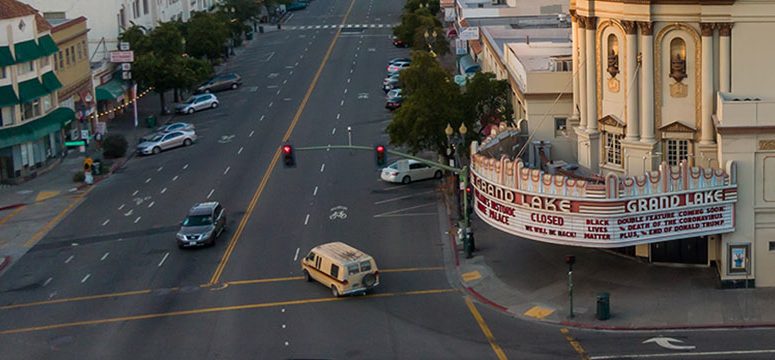
Michael Andersen blogs for The Green Lane Project, a PeopleForBikes program that helps U.S. cities build better bike lanes to create low-stress streets.
The battle to make biking a viable transportation or recreation choice for more people is fought mostly at the local level: a protected bike lane here, a BMX course there, a new mom-and-pop bike shop down the street.
But it's sometimes nice to remember that this fight is happening, on some level, every day in every country around the world.
And at least in the industrialized world, Team Bike is generally winning.
That's the takeaway from the first three years of data from Eco-Counter, a France-based firm that has installed 12,000 automated people-counters around the world to measure bike and foot traffic. One is in front of the Strathmore Building on the campus of UCLA; another is on the Avenida Figueroa Alcorta protected bike lanes in Buenos Aires; a third is on the car-free Sillsteg Bridge in Innsbruck, Austria.
Starting in 2013, the company began analyzing data from 1,500 of these counters to create something unique: an index that tracks changes in bike counts across all these locations year after year.

As you can see from the map, there's a very important shortcoming to this data: It includes almost no counters from the world's most populous regions (southern and eastern Asia) or its fastest-growing one (western Africa). Because all of these areas have also been getting rapidly richer, bike use has been falling in those areas as upwardly mobile car users have taken control of more and more space on roads. (Some cities, like Hangzhou, China, have successfully resisted this trend to some extent; others, like Dehli, India, are working to roll it back.)
That said, Eco-Counter is the only company we're aware of that's even attempting a global count. And its finding in these first two years have been encouraging. Bike counts at its 1,500 index sites have gone up at an annualized growth rate of 5.4 percent since 2013.
That compares to a global population growth rate of 1.2 percent. Just for the sake of comparison, here's what those two trends look like if you map them over time:

Eco-Counter also looks at the national trend in 17 countries where it's tracking at least 10 counters. It estimates that the fastest two-year rise in bike counts has been in Switzerland, with 8.6 percent annualized growth. (For more on the company's methodology and findings, check out this slideshow presenting the 2015 figures.)
There's another caveat in all of this: the economy. As the world's economy ebbs and flows, bike counts are likely to do the same. Generally speaking, more business means more moving around, whether by bike, foot, bus or car.
So at least until Eco-Counter gets more years in its database, these numbers should be treated as a sign of progress in the places it measures, nothing more. Still, they're probably welcome news for people on the front lines.
"We can definitely see the push in the infrastructure and the policy and the interest," said Jean-Francois Rheault, Eco-Counter's director. "But it's nice to see the push in the numbers."
You can follow The Green Lane Project on LinkedIn, Twitter and Facebook or sign up for its weekly news digest about protected bike lanes.






